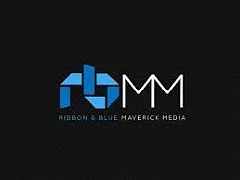- within Intellectual Property topic(s)
- with readers working within the Law Firm industries
- within Intellectual Property topic(s)
- with readers working within the Law Firm industries
- within Media, Telecoms, IT and Entertainment topic(s)
INTRODUCTION
Trademarks are important identifiers made up of words or design components that represent the origin, ownership, and development of products or services. They have substantial business significance since they provide legal protection for the exclusive use of marks, names, design elements, logos, silhouettes and other identifiers created or employed by authors to differentiate their products and services.
Trademark Laws not only protect legal rights, but they also foster the creation of valuable assets that may appreciate over time, add to the valuation of the business or brand and be employed as collateral for accessing some funding. On an international scale, trademarks provide global protection and the promotion of international corporate expansion.
Trademark Registration in Nigeria
The Ministry of Trade and Investment in Nigeria regulates trademark registration, specifically through the Trademarks, Patents, and Designs Registry, which is part of the Commercial Law Department. The process of registering and obtaining the final certificate of registration for trademark application in Nigeria typically spans a period of between twelve and twenty-four months.
Trademarks are classified into various Classes, following the NICE Agreement of 1957, which is currently maintained by the World Intellectual Property Organization. This classification system includes 45 classes: Classes 1 to 34 pertain to goods across different sectors, while Classes 35 to 45 cover services
The process of registering a trademark in Nigeria involves the following steps;
- Search: Before registration, the applicant must conduct a search at the Ministry of Trade and Investment to ensure that no existing trademark conflicts with the applicant's proposed mark, in the preferred class of registration.
- Application: Once the search comes back with a positive result of a conflicting mark, the applicant files an application, including the name, address, and nationality of the applicant, the company's name (where applicable), a clear representation of the trademark, and a description of the goods and services associated with the trademark.
- Examination: The trademark registry examines the application to ensure it meets all requirements. The applicant is issued an Acceptance Letter while the Registry proceeds to the Publication stage.
- Publication: After examination, the trademark is published in the Trademark Journal, allowing the public to view and potentially oppose the registration. If an opposition is filed, the registry will investigate the claim.
- Certificate: If there are no oppositions, or if the opposition has been resolved in favor of the applicant, a certificate of registration is issued.
International Trademark Registration
Owing to technological innovations and the unending benefits of the internet, talents and businesses in Nigeria are gaining international recognition, propelling business owners, whether in traditional industries or emerging ones, to trademark their unique products and services marks or identifiers. It is crucial for creatives and business professionals to understand the significance of international registration of trademarks, especially for brands that have garnered international audience and are looking to scale their businesses internationally. International registration prevents unauthorized exploitation of the registered marks by other persons in countries where the product is being consumed or is gaining notoriety. In other words, it protects against the misappropriation of the Trademark Owner's logo, name, or other goods and services identifiers through the passing off of the infringing marks as originating from the Trademark owner through whom the identifier gained popularity and for whatever qualities for which the goods or services are specifically favored.
Registering a trademark internationally through the World Intellectual Property Organization ("WIPO") provides global protection, but it is essential to understand the distinction between being a WIPO member state and being part of the Madrid Protocol. While WIPO has 193 member states, not all have ratified the Madrid Protocol, a specialized treaty for international trademark registration. To join the Madrid Protocol, countries must be WIPO members and must specifically ratify the protocol.
The Madrid Agreement on the International Registration of Marks ("The Madrid Protocol"):
The Madrid System, governed by the Madrid Agreement (1891) and the Madrid Protocol (1989), simplifies international trademark registration. Administered by the World Intellectual Property Organization (WIPO), this system allows trademark owners to extend protection to over 100 countries with a single application. The primary goal is to streamline the process, eliminating the need for separate country-by-country applications. Through the Madrid System, trademark owners can efficiently secure protection in multiple countries, saving time and resources.
Article 4 of the Protocol Relating to the Madrid Agreement Concerning International Trademark Registration stipulates that a trademark registration shall have effect in all contracting states as if the registration was directly deposited in each country. This means that once a trademark is registered, it will take effect in all contracting states, providing seamless protection across borders. This provision highlights the significance of trademark registration and the benefits of utilizing the Madrid System for international trademark protection.
Articles 3, 4, 5 & 6 of Protocol Relating to the Madrid Agreement Concerning the International Registration of Marks outlines the registration process for international trademarks which provides as follows:
- Applications must meet specific Requirements:
All applications must contain:
- Applicant's name and address;
- Clear representation of the mark;
- The goods and services covered; and
- Designation of contracting parties (countries where protection is sought).
- File the Application: Applications shall be submitted through the Office of Origin (trademark office of the applicant's home country) in one of the accepted languages (English, French, or Spanish).
- Examination: The International Bureau (WIPO) examines the application for formalities and compliance with the Madrid Protocol. The International Bureau shall conduct a search of existing registrations and pending applications and upon evaluation either issue a certificate of registration or notify the applicant of any irregularities.
- Registration: If approved, the mark is registered in the International Register and published in the WIPO Gazette of International Marks. The registration then becomes effective in the designated contracting parties (countries).
The registered mark is protected for a period of ten (10) years from the date of registration, which is renewable for another period of ten (10) years.
Becoming a Contracting State:
Membership of the WIPO is open to countries that meet the specific requirements. Countries that are parties to international agreements aimed at protecting intellectual property, such as the Paris Convention for the Protection of Industrial Property (Paris Union) and the Berne Convention for the Protection of Literary and Artistic Works (Berne Union) are opened to join WIPO, a state that is a party of the United Nations or one of its specialized agencies, such as the United Nations Educational, Scientific and Cultural Organization (UNESCO) is welcome to be a party member of WIPO. Furthermore, the WIPO General Assembly can invite any state member to become a party to the WIPO Convention, opening up membership to a wider range of countries.
Art 5 Convention Establishing the World Intellectual Property Organization (as amended on September 28, 1979)
Other international agreements designated to promote intellectual property protection, whose administration is assumed by WIPO, also qualify countries for membership.
To complete the membership process, countries must sign and ratify the WIPO Convention, deposit an instrument of accession or ratification with the WIPO Director-General, and pay the required annual contributions. By joining WIPO, countries can participate in shaping global intellectual property policies and practices, promoting innovation and creativity worldwide.
Nigeria and the Madrid Protocol:
It is noteworthy to state that WIPO has 193 member states, but only 108 countries have signed the Madrid Protocol, which is approximately 56% of WIPO's membership. Unfortunately, Nigeria is one of the countries that has not adopted the Madrid Protocol, which means that Nigerian businesses and individuals must file separate trademark applications in each country where they seek protection which is a cumbersome and costly process. Contrarily, many African countries have recognized the benefits of the Madrid System and have signed the protocol, including, Ghana, Zambia, Zimbabwe Egypt, Morocco, Tunisia, and others.
As Nigeria is currently not a party to the Madrid Protocol, its citizens face challenges in protecting their trademarks globally. To increase the ease of doing business, attract foreign direct investment in the country and create an enabling environment for global assurances of protection of Intellectual Property rights from Nigeria, it is imperative that the Nigerian government:
- very urgently accedes to and ratifies the Madrid Protocol by depositing its instrument of accession and ratification with the World Intellectual Property Organization (WIPO) formalizing its membership in the Madrid System;
- enacts domestic legislation to implement the Madrid Protocol, aligning its trademark laws with international standards;
- establishes regulations and procedures for trademark registration and protection incorporating the Madrid System process and requirements;
- once the above are completed, raise awareness among businesses, individuals, and relevant authorities about its status with the Madrid System to encourage and assure them of global protection of their unique identifiers in a cost effective, bankable and pragmatic manner; and
- should ensure its trademark office is equipped to handle international trademark registrations and related matters.
By taking these steps, Nigeria can join the Madrid Protocol, thereby simplifying trademark registration and protection for its citizens, and promoting economic growth and global competitiveness.
CONCLUSION
Being a member of the Madrid Protocol is essential for international trademark registration as it saves time and money compared to individual country-by-country registration. Unfortunately, Nigeria is not a signatory to the Madrid Protocol, making it difficult for Nigerian citizens to protect their trademarks internationally which requires careful planning and financial effort to register trademarks globally in individual countries.
By signing or becoming a party to the Madrid Protocol, the Nigerian government will assist its citizens expand their businesses globally while safeguarding their intellectual property. Prioritizing this issue while taking the necessary steps will make trademark registration more accessible and efficient for Nigeria's commercial landscape.
The content of this article is intended to provide a general guide to the subject matter. Specialist advice should be sought about your specific circumstances.


